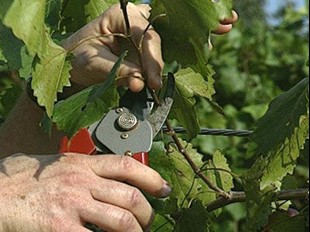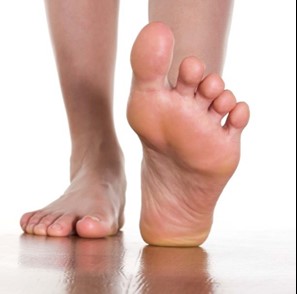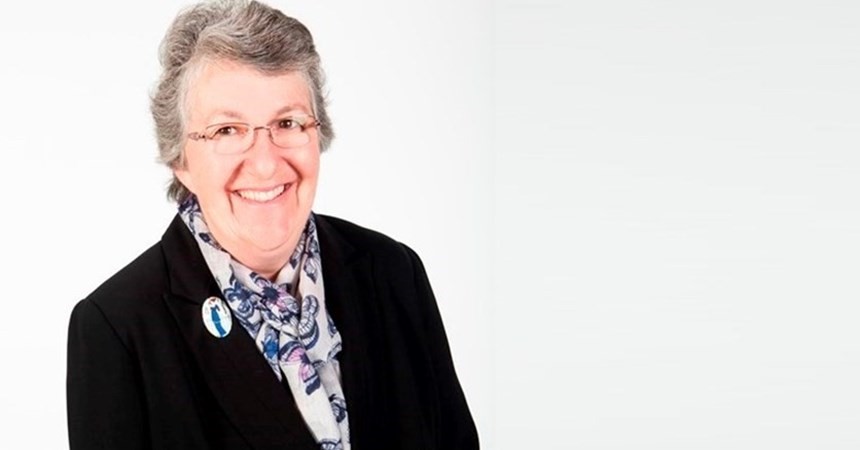The key message for us is to remain attached to Jesus and to be nourished by him so as to produce the fruits of the Spirit – love, joy, peace, patience, kindness, generosity, faithfulness, goodness and self-control. We are called to be the vinedresser to each other and to bring out the absolute best in those with whom we associate.
 Through the week I picked up an advertising magazine ‘Jones’, at David Jones. There were articles written by several female writers about being fearless.
Through the week I picked up an advertising magazine ‘Jones’, at David Jones. There were articles written by several female writers about being fearless.
One was written by Dr. Bronwyn King, a radiation oncologist and Founder/CEO of Tobacco Free Portfolios. If you wish to know more, she can be found speaking about this in a TED talk on the internet. However, apart from the key message she delivers about seeking superannuation funds which do not invest in tobacco companies, she was interviewed about being fearless. This is what she said:
“I’m completely exhausted!” She laughs. “Being fearless has really meant taking a chance when I didn’t know what the outcome would be. A couple of years ago, I’d said to my colleague, ‘I don’t know where I am going. What am I doing?’ She said, ‘Just keep stepping forwards, the path is forming under your feet.’ That really captures the sense of ‘yep this is really risky. We don’t know exactly what’s going to happen but, if you keep following your instinct and take reasonable risks, everything is going to be okay.’” (page 28)
In the same article, actor Teresa Palmer had the following to say:
“Fearless means diving in uncomfortable places, exploring the stuff that makes you feel vulnerable, striving to go deeper and get closer to who you are… It’s standing by your convictions and looking at the valleys in life as opportunities to find growth and change. It’s using your voice for advocacy and being proud of your truth. It’s rising above the powers that be, who want to challenge you, provoke and intimidate you, it’s staying in the light despite [the fact that] others might try to pull you down.” (page 29)
 It seems to me that both of these women speak of a fearlessness that leads to growth, a bit like the vine in our Gospel. During the past week, on the SBS Insights Program, people shared their stories about accidentally killing someone. One of those who spoke referred to Post-Traumatic Growth, as an alternative to Post-Traumatic Stress Disorder. It is growth of which we are all capable. I have no doubt that life throws at us some ‘stuff’ that is unwanted, unpleasant and messy. With maturity and support we can choose our response.
It seems to me that both of these women speak of a fearlessness that leads to growth, a bit like the vine in our Gospel. During the past week, on the SBS Insights Program, people shared their stories about accidentally killing someone. One of those who spoke referred to Post-Traumatic Growth, as an alternative to Post-Traumatic Stress Disorder. It is growth of which we are all capable. I have no doubt that life throws at us some ‘stuff’ that is unwanted, unpleasant and messy. With maturity and support we can choose our response.
And then I came across Richard Rohr’s Daily Meditation on Wednesday 25 April. Over the past couple of weeks, he has been writing about Gender and Sexuality. As part of this daily meditation, he offered the readers a glimpse of Mary Magdalene from Cynthia Bourgeault’s book, The Meaning of Mary Magdalene: Discovering the Woman at the Heart of Christianity (Shambhala: 2010). She writes:
I’d like to reclaim Mary Magdalene as an apostolic partner of Jesus, as one who ministered in a tradition that was not just about male/female equality. Certainly it was about that, and Jesus was way out in front of the pack; equality was the starting point for everything else. But Mary and Jesus took it a step further, including and transcending the opposites and birthing a new form of person who lived, ministered, and saw out of a new and non-dual consciousness. Mary can help us recover Jesus’ teaching and live in holographic unity, the kingdom of heaven here on earth.
…….
While [Mary Magdalene] has often been sentimentalized or sexualized, there has not until recently been the slightest threat of her being divinized, and her intact humanness is her saving grace. Now that a new generation of Bible scholarship has corrected the glaring inaccuracy of her earlier portrayal as a prostitute and is steadily laying the groundwork by which she will sooner or later be able to fully reclaim her role as Jesus’ spiritual partner and [wisdom] lineage bearer, what presents itself to us is an accessible and entirely believable portrait of “one who got there”.
Applying the teachings that Jesus showed her, [Mary] did her inner work and emerged through the eye of the needle into singleness. If Jesus shows us what the completed human being looks like in male form, she models it for us in its female version; together they become the Christosophia, the androgynous archetype of human wholeness. And because her human heart and lover’s passion are so central to this transformation, she teaches us that we need not be afraid of these things in our own spiritual striving; the path to the fullness of being lies through human intimacy, not away from it. She binds the icon of the human heart to the angel of Holy Sophia.
 The women I read about in an advertising magazine, and Mary Magdalene, and many other women known to us, are women who are proud, self-confident, authentic and fearless. They step in to be part of the solution, not part of the problem. They are the vinedressers who meticulously seek out the stem or branch that needs pruning, so that the vine will be healthier and more productive, and its fruit sweeter than nectar. Those of us who have been granted the gift of children know only too well that parenting is like being a vinedresser ‒ our children’s lives depend on it.
The women I read about in an advertising magazine, and Mary Magdalene, and many other women known to us, are women who are proud, self-confident, authentic and fearless. They step in to be part of the solution, not part of the problem. They are the vinedressers who meticulously seek out the stem or branch that needs pruning, so that the vine will be healthier and more productive, and its fruit sweeter than nectar. Those of us who have been granted the gift of children know only too well that parenting is like being a vinedresser ‒ our children’s lives depend on it.
And so while in Mass, listening to the Second Reading from the First Letter of St John (3:18-24), my ears caught the word ‘boldness’ and I immediately thought about this message and the women who are fearless and yes bold. So I share that reading with you:
Little children, let us love, not in word or speech, but in truth and action. And by this we will know that we are from the truth and will reassure our hearts before him whenever our hearts condemn us; for God is greater than our hearts, and he knows everything. Beloved, if our hearts do not condemn us, we have boldness before God; and we receive from him whatever we ask, because we obey his commandments and do what pleases him.
And this is his commandment, that we should believe in the name of his Son Jesus Christ and love one another, just as he has commanded us. All who obey his commandments abide in him, and he abides in them. And by this we know that he abides in us, by the Spirit that he has given us.
I implore each of you to be fearless, bold, courageous and on the lookout for opportunities to transform yourselves and others ever so carefully and delicately, so that each of us can bear fruit that will last. Look around and see the good fruit, those who are Jesus’ disciples, and affirm them in their witness to goodness and truth. Let’s help each other’s growth.

